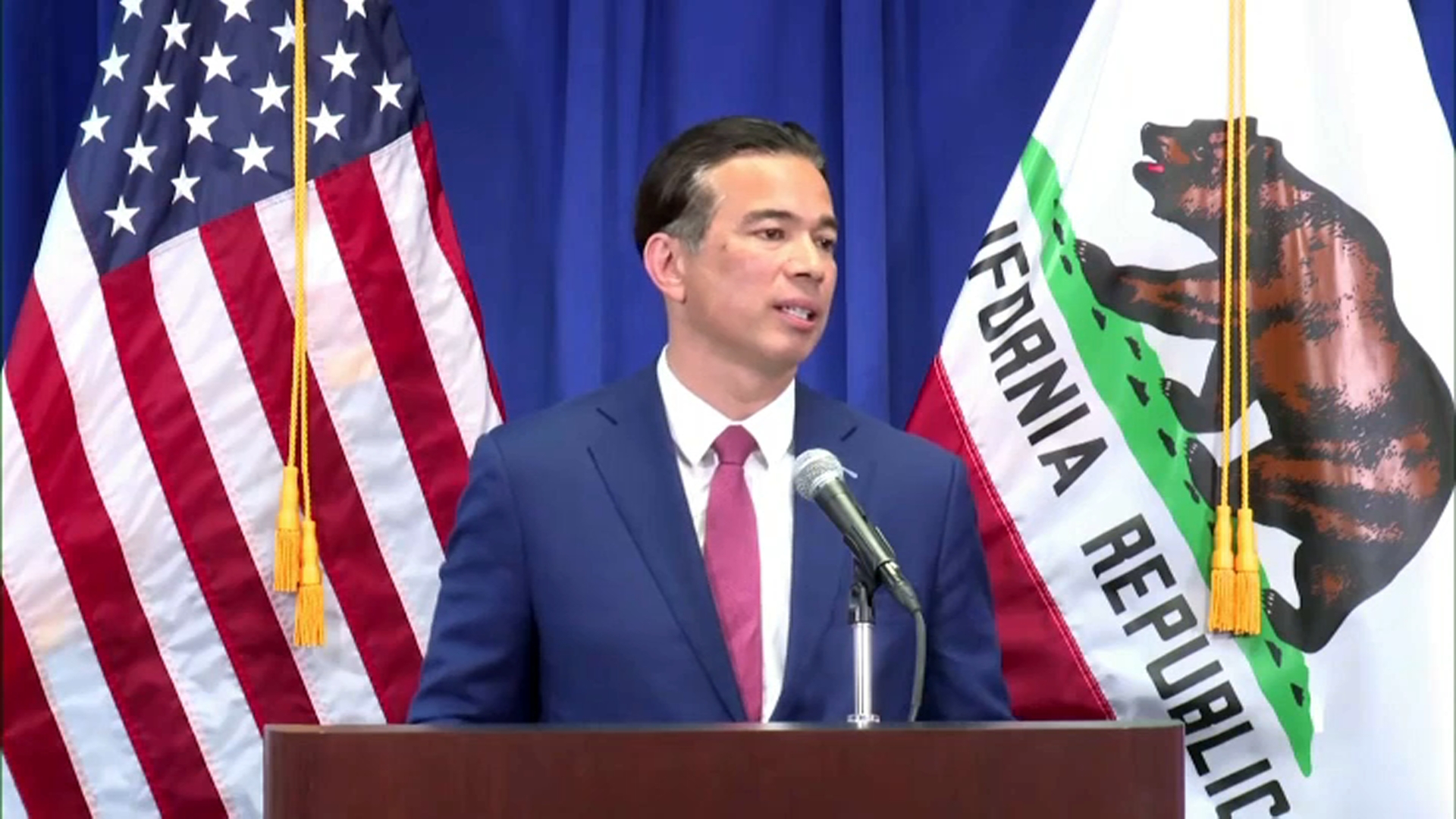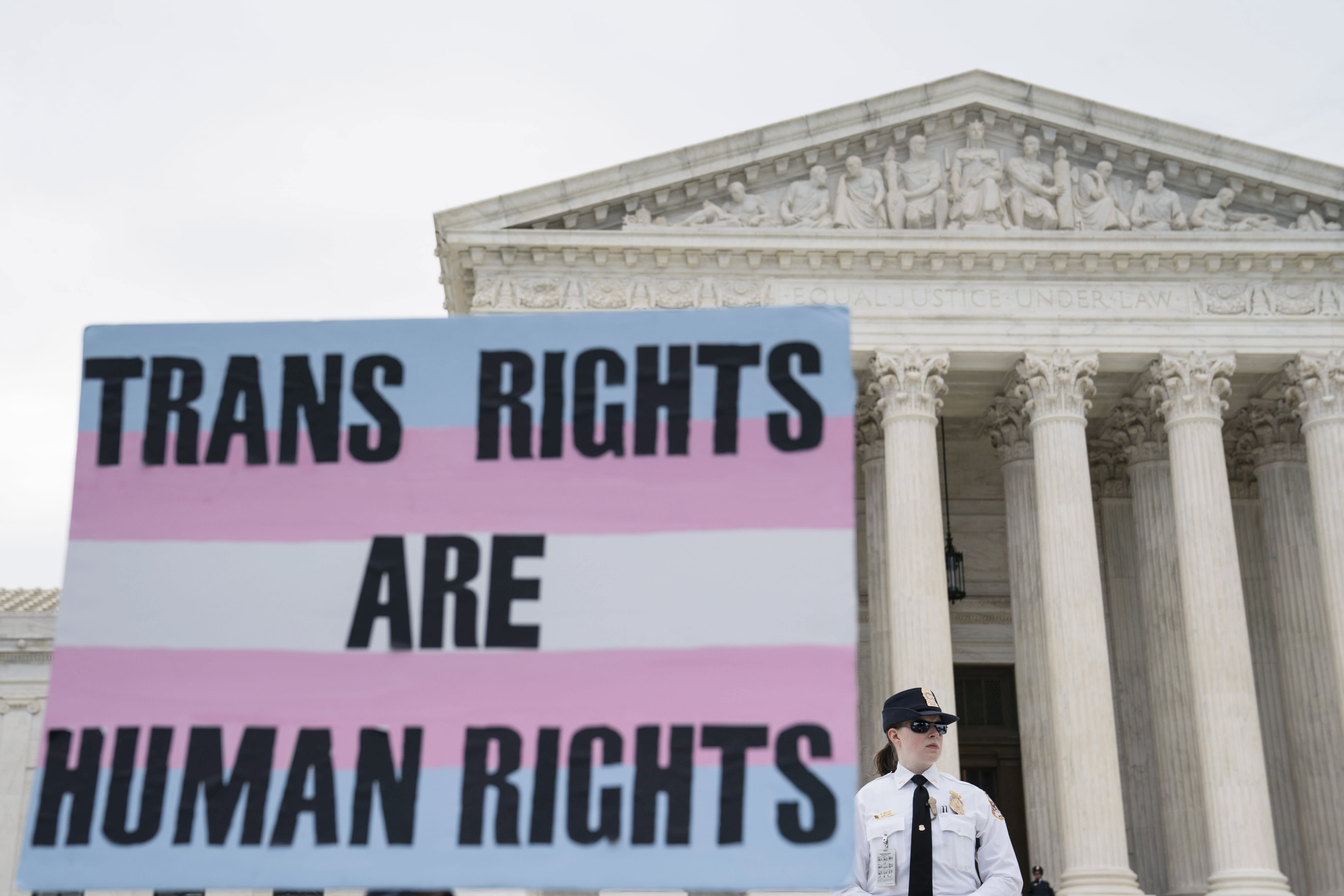Federal judges on Wednesday temporarily blocked an Arkansas law banning gender confirming treatments for transgender youth and a West Virginia ban on trans athletes in women's sports, two major victories for LGBTQ advocates against a wave of restrictions approved by Republican legislators.
The ruling in Arkansas prevents the state from enforcing the law that made it the first state to forbid doctors from providing gender-confirming hormone treatment, puberty blockers or sex reassignment surgery to anyone under 18 years old. The law, which was to take effect July 28, also banned doctors from referring minors to other providers for such treatment.
U.S. District Judge Jay Moody found that the plaintiffs were likely to succeed with their challenge and that allowing it to be enforced would hurt transgender youth currently receiving the treatments.
“To pull this care midstream from these patients, or minors, would cause irreparable harm,” Moody said.
Get top local stories in Connecticut delivered to you every morning. >Sign up for NBC Connecticut's News Headlines newsletter.
More Transgender Rights Coverage
The laws were among several restrictions on transgender people’s rights that were enacted in Republican states this year. Tennessee’s governor in May signed a ban on gender confirming treatments similar to Arkansas’. West Virginia was among at least seven states that approved restrictions on transgender athletes.
Moody's ruling came the same day a federal judge issued an injunction preventing West Virginia from enforcing its transgender athletes restriction on an 11-year-old trans girl who had hoped to compete in middle school cross country.
Becky Pepper-Jackson said she comes from a family of runners and simply wants to compete with her classmates.
“I am excited to know that I will be able to try out for the girls’ cross-country team and follow in the running shoes of my family,” she said in a statement released later Wednesday by the LGBTQ interest group Lambda Legal. “It hurt that the State of West Virginia would try to block me from pursuing my dreams. I just want to play.”
The American Civil Liberties Union and Lambda Legal filed the West Virginia lawsuit on behalf of Pepper-Jackson. The ACLU had sued Arkansas over its treatment ban on behalf of four transgender youths and their families, as well as two doctors who provide gender confirming treatments.
U.S. District Judge Joseph Goodwin said in his order that it was in the public interest to uphold the girl's constitutional right to not be treated differently than her peers “because any harm to (her) personal rights is a harm to the share of American rights that we all hold collectively.”
West Virginia’s law, signed by Republican Gov. Jim Justice in April, prohibits transgender athletes from competing in female sports in middle and high schools and colleges. A spokeswoman for the state Department of Education did not immediately response to an email requesting comment on the ruling.
The U.S. Justice Department last month criticized both states' bans as unconstitutional, filing statements of interest siding with challengers to the restrictions. The DOJ said the laws in both states violate the equal protection clause of the 14th Amendment. It also said the West Virginia law violates Title IX, which prohibits discrimination on the basis of sex in any education program or activity receiving federal funds.
The ACLU argued that Arkansas' prohibition would severely harm transgender youth in the state and violate their constitutional rights.
“This ruling sends a clear message to states across the country that gender affirming care is life-saving care, and we won’t let politicians in Arkansas — or anywhere else — take it away,” said Holly Dickson, executive director of the ACLU of Arkansas.
An attorney for the ACLU had said the ban was forcing some families to consider uprooting from their homes to move to other states where the care was legal.
“This care has given me confidence that I didn't know I had," Dylan Brandt, a 15-year-old transgender boy from Greenwood who is one of the plaintiffs, said at a news conference after the ruling.
Arkansas' Republican-dominated Legislature overrode GOP Gov. Asa Hutchinson's veto of the measure. Hutchinson vetoed the ban following pleas from pediatricians, social workers and the parents of transgender youths who said it would harm a community already at risk for depression and suicide.
Hutchinson said the ruling indicates the law will be struck down for the same reason he vetoed it.
“The act was too extreme and did not provide any relief for those young people currently undergoing hormone treatment with the consent of their parents and under the care of a physician," Hutchinson said in a statement. “If the act would have been more limited, such as prohibiting sex reassignment surgery for those under 18, then I suspect the outcome would have been different."
There are currently no doctors in Arkansas who perform such surgeries on minors.
Attorney General Leslie Rutledge, a Republican, said she planned to appeal the decision.
“I will aggressively defend Arkansas’s law, which strongly limits permanent, life-altering sex changes to adolescents," Rutledge said. “I will not sit idly by while radical groups such as the ACLU use our children as pawns for their own social agenda."
Moody issued the ruling shortly after hearing arguments from the law's opponents and the state for about an hour and a half.
The judge appeared skeptical of the state's argument that the ban was targeting the procedure, not transgender people. For example, he questioned why a minor born as a male should be allowed to receive testosterone but not one who was born female.
“How do you justify giving that to one sex but not the other and not call that sex discrimination?" Moody asked.
Arkansas argued that the state has a legitimate interest in banning the procedures for minors. Republican attorneys general from 17 states asked Moody to uphold the ban.
Several major medical groups, including the American Medical Association and the American Academy of Pediatrics, filed a brief with the court challenging Arkansas' ban. The state Chamber of Commerce and the Walton Family Foundation, which was founded by relatives of Arkansas-based Walmart's founder, also asked the court to block the ban.
Raby reported from Charleston, West Virginia



